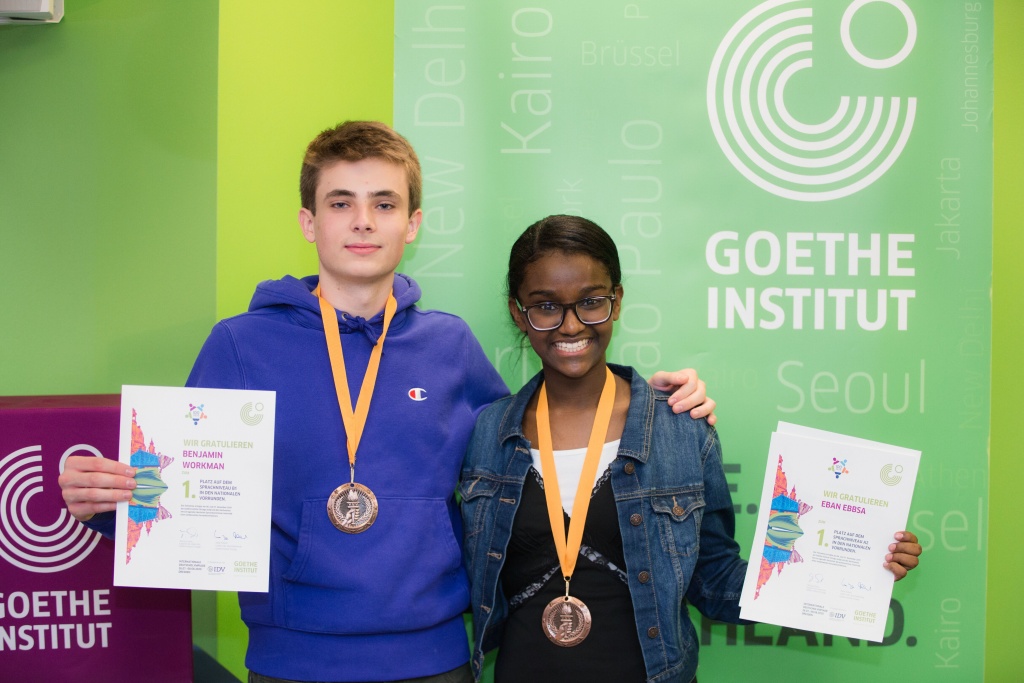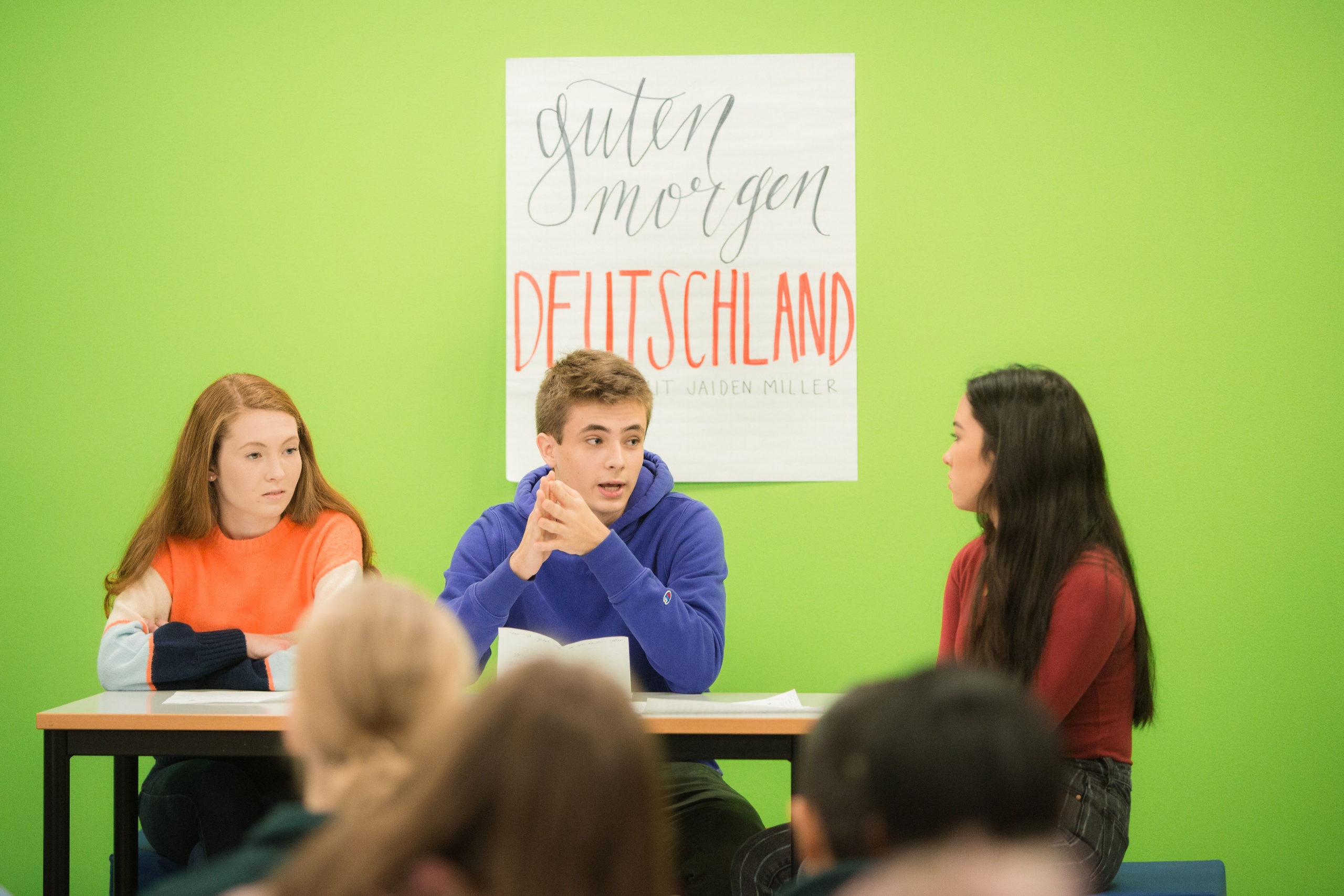Ben Workman’s ’21 aptitude for the German language stands out immediately. In his German 4 Honors class, he frequently helps other students, leads discussions, and excels at explaining difficult topics. Workman speaks like a native speaker, though he only began studying German in seventh grade like many of his peers.
Workman is not only one of the best German language learners in his class, but also in the nation. He will represent the United States this summer in the International German Olympics, or the Internationale Deutscholympiade (IDO), the largest German language competition in the world.
The IDO is a competition that runs every two years in around 75 different countries. Teachers may nominate up to four or five students for the first round of the competition that occurs online from October 15-18.
According to the Goethe-Institut, the Federal Republic of Germany’s cultural institute that organizes the competition, the purpose of the IDO is to “promote young international talent and to get young people abroad enthusiastic about the German language, to strengthen tolerance among themselves, and to open doors to German culture and civil society for the participants.”
Frau Devon Ellis, Workman’s current German teacher, says Workman’s ability to speak German to both native and non-native speakers and his “facility with language” — his unique ability to internalize everything he hears and sees immediately and reproduce it — convinced her to nominate him.
“Typically when students learn [a language], they have to look at it, they have to hear it, and they kind of stumble through doing it the first couple times. They will ask questions and will practice a lot. But with Ben, there’s something in his brain just translates it immediately and he is able to see it and understand how to use it in a variety of contexts,” said Ellis “He can do it immediately without any preparation and without any extra practice. Then being the student that he is, he does practice. It just enables him to be a very phenomenal student in German.”
Ellis also says she decided to nominate Workman because of the skills he displayed in the application process last summer for the National German Exam Study Trip Award, a selective German exchange program that Workman participated in, would enable him to do well in the IDO.
“The program was really fun. I was in Germany for a little over three weeks and I had gotten to meet a lot of cool people there. I got to get a really good experience getting immersed in the language and culture. I think my perspective on the German language and the German culture broadened,” said Workman.
Workman also says his German skills improved drastically after participating in the exchange program — skills that he says helped him succeed in the second round of the IDO.

Workman, along with thirteen other students from the country, advanced from the online round of the IDO to the second round hosted by the Goethe-Institut in Chicago. These fourteen students represent the top five percent of high school German language learners in America.
Workman arrived in Chicago on December 6, and after a round of ice-breakers and a quick tour of the Willis Tower, the competition began. Workman competed in three rounds that tested his listening, reading, and speaking skills.
On the final day of the competition, participants had sixty minutes to prepare a ten-minute creative presentation in German for a panel of judges consisting of people from the Goethe-Institut, professors from local universities, and some Ph.D. students. Students presented groups of three to four on a topic that they did not know beforehand. Workman’s topic was living a healthy lifestyle.
Workman ultimately emerged as the winner for the second round in Chicago. For the final round, if international travel is deemed safe, Workman will travel to Dresden, Germany from July 26 to August 8 to represent America and compete with other German students from 75 different countries. If travel conditions are not safe by the end of April, the Goethe-Institut will hold the IDO online.
Workman credits his success in German to Ellis and Frau Aurelie Nkam, his German 2 Honors teacher.
“Both of those teachers supported me in the classroom in terms of teaching the material really well and making sure that everybody understood it. In terms of outside of the classroom, Frau Ellis is the one that recommended to me that I do the two programs and helped me prepare for them,” said Workman. “Without both of their support, I wouldn’t be able to do it.”
Ellis attributes Workman’s desire to learn and his humility as factors that contribute to his success in German.
“Ben is so interested in and curious about everything we do. He listens so acutely and is truly interested in learning more, making connections to prior knowledge and also what he is learning in other courses,” said Ellis. “In addition, he is so respectful of others and truly wants to hear and know what they have to say, which inevitably leads to great, spontaneous, and interesting discussions.”
In addition to his involvement with German, Workman is on the Science Olympiad team, the Academic Decathlon team, and the sailing team. Outside of school, Workman teaches coding classes to elementary schoolers and is part of a philanthropy group called Youth in Philanthropy.
Workman hopes to study German in college and possibly combine it with another area of study.
“I’m also really passionate about economics, so combining German and economics to get an international business experience would be interesting,” said Workman.

